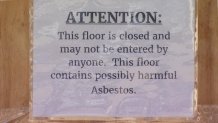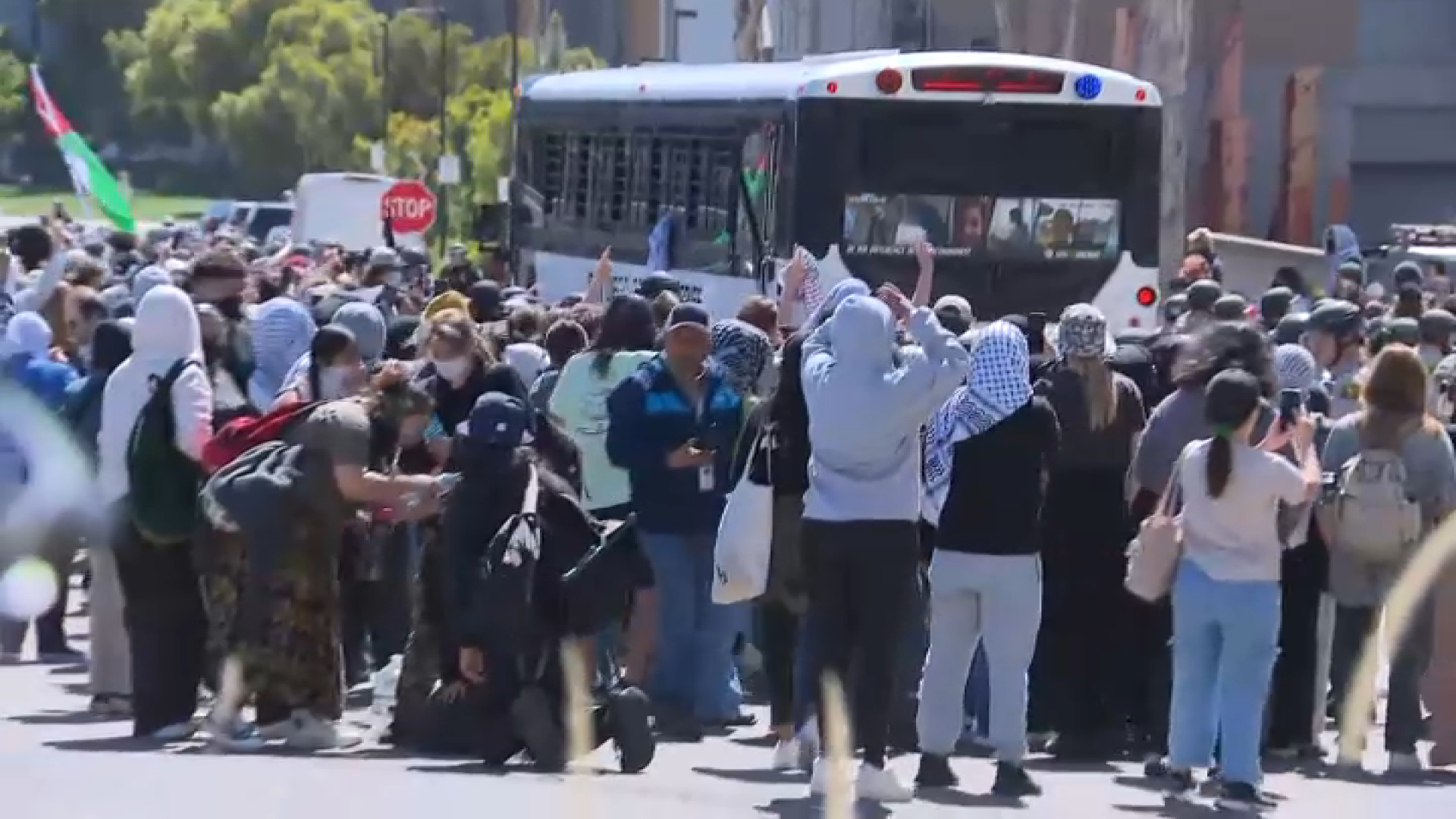More than a decade of neglect put thousands of San Diego firefighters at risk for a serious, and sometimes deadly disease. Those firefighters were repeatedly exposed to asbestos and lead in the floors, walls, and ceilings of buildings used to train San Diego firefighters.
Documents obtained by NBC 7 Investigates reveal in past years, the city minimized the danger and failed to act quickly to protect first responders training at San Diego’s Fire Academy. At least one firefighter asked to be relieved of his duties as an Assistant Instructor at the training facilities “due to growing concerns over the presence of asbestos."
The Fire Academy is located on the site of the old Naval Training Center (NTC,) just north of the San Diego International Airport off of Harbor Drive.
Last year, according to emails obtained by NBC 7 Investigates, the department’s Cancer Awareness and Prevention Program manager claimed he was removed from the asbestos abatement project “shortly after submitting an evidence-based paper highlighting the documented health hazards at [the training facility.]”
In November, NBC 7 learned from city employees that firefighter trainees and instructors had been continually exposed to potentially deadly asbestos at the San Diego Fire Academy near the Airport.
NBC 7 Investigates filed a public record request for internal fire department documents. Those documents, released last week, confirm the fears of fire department personnel and provide evidence that the department delayed the implementation of a comprehensive fix to the asbestos problem at the training facilities for 15 years.

“The longer the person’s exposure, the greater the risk,” said attorney Frederick Schenk, a veteran civil litigator who has represented thousands of asbestos victims. Schenk said anyone exposed to airborne asbestos particles is at increased risk for asbestosis, lung cancer, and mesothelioma, a cancer of the lining of the lungs.
Local
“Mesothelioma is a bad cancer,” Schenk said. “There are treatments but no real cures. It is painful, and generally, the time from exposure to death is typically about 18 months.”
“When we heard that there was potential long-term asbestos exposure, we were furious," said San Diego Fire Captain Jesse Conner, president of the local firefighters’ union. “One of the repeated mistakes over the years was that the fire department never fully addressed the problem. They continued to put interim solutions in place.”
The focus of health concerns at the Fire Academy is asbestos-containing tiles, adhesive, and insulation on pipes in Buildings 71, 72, 88 and 89 at the old NTC facilities, which the city converted to a police and fire training center more than 20 years ago.
A memo was written last August by Kurtis Bennett, the department's former Cancer Awareness and Prevention Program (CAPP) manager, who explained that trainees constantly damaged asbestos tiles, scraped asbestos-based glue and pulverized asbestos-containing materials when they dragged heavy tools across those floors, and crawled through the NTC buildings as part of their required training.
To read that memo, click here.
“Every SDFD firefighter for the previous two decades has spent literally hundreds of hours training in the buildings at NTC,” Bennett wrote. “Employee concerns about environmental safety at NTC were not addressed properly.”
Attorney Schenk said those so-called “destructive” training methods increase the risk of asbestos exposure in any setting.
“That's where the tremendous amount of fibers are created, become airborne, and are breathed in,” Shenk said.
Bennett’s memo states San Diego’s Fire Department command was, "aware of the asbestos hazards at the NTC site since at least 2002."
According to inspection reports obtained by NBC 7 Investigates, asbestos in one building was removed that year, but according to Bennett’s memo, only “spot abatements” were performed after that, despite concerns raised by at least two Fire Department captains and other department employees.
The documents also reveal that in 2015, academy instructor Kevin Pendleton resigned his training duties due to, "growing concerns about the presence of asbestos and the condition of our training facility."
“After weighing the value of my current position against the level of [asbestos] exposure, I have decided that I must place my own well-being and peace of mind ahead of my career ambitions,” Pendleton wrote in his February 6, 2015 resignation letter.
Two months later, a city asbestos inspector confirmed asbestos-containing tiles had been damaged in Buildings 88 and 89.
“Recommend not occupying area until proper cleanup and abatement has been done,” the inspector wrote. “First floor has severe tile damage and should not be occupied.”
After the damaged tiles were removed, training resumed in those buildings.
“If we knew that this was a hazard, how can we continually expose firefighters to these conditions?” said union president Conner. He said the 905-member union was instrumental in persuading Fire Department managers to tackle the asbestos clean-up in a thorough and careful manner.
Last summer, after facing pressure from the union and the department’s Cancer Awareness Prevention Program Manager, San Diego’s Fire Department closed the dangerous buildings.

On Friday, NBC 7 Investigates asked San Diego’s Fire Chief or another department representative for an on-camera interview. Our request was declined, but in an email response received Monday afternoon, a spokesperson said every time an asbestos-related report was generated, it was acted upon immediately.
“Access [to asbestos-containing buildings for training] is currently forbidden until clean-up and abatement occurs,” said San Diego Fire spokesperson Monica Munoz.
In September 2018, Assistant Fire Chief Kevin Ester asked the city for emergency funding to begin the asbestos abatement work.
“Through mayoral action, $210,000 has been authorized for abatement and cleanup activities on the facility,” Munoz said.
No date was given on when, or if, intensive training will resume at the old NTC facility.
Union president Conner told NBC 7 that the union has arranged for long-term medical tests and surveillance for firefighters, to detect, track and treat possible lung disease.
Do you have information on this story or another that you think NBC 7 Investigates should know? Email the team at NBC7Investigates@NBCUNI.com or call (619) 578-0393



